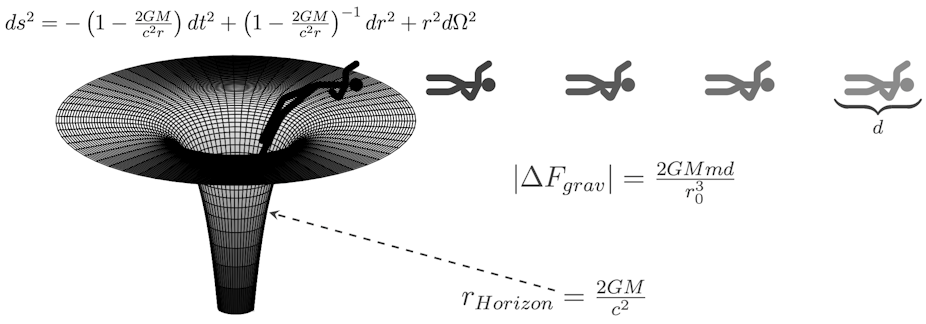by LEO RODRIGUEZ & SHANSHAN RODRIGUEZ

Could a human enter a black hole to study it? – Pulkeet, age 12, Bahadurgarh, Haryana, India
To solve the mysteries of black holes, a human should just venture into one. However, there is a rather complicated catch: A human can do this only if the respective black hole is supermassive and isolated, and if the person entering the black hole does not expect to report the findings to anyone in the entire universe.
We are both physicists who study black holes, albeit from a very safe distance. Black holes are among the most abundant astrophysical objects in our universe. These intriguing objects appear to be an essential ingredient in the evolution of the universe, from the Big Bang till present day. They probably had an impact on the formation of human life in our own galaxy.
Two types of black holes
The universe is littered with a vast zoo of different types of black holes.
They can vary by size and be electrically charged, the same way electrons or protons are in atoms. Some black holes actually spin. There are two types of black holes that are relevant to our discussion. The first does not rotate, is electrically neutral – that is, not positively or negatively charged – and has the mass of our Sun. The second type is a supermassive black hole, with a mass of millions to even billions times greater than that of our Sun.
Besides the mass difference between these two types of black holes, what also differentiates them is the distance from their center to their “event horizon” – a measure called radial distance. The event horizon of a black hole is the point of no return. Anything that passes this point will be swallowed by the black hole and forever vanish from our known universe.
The Conversation for more
